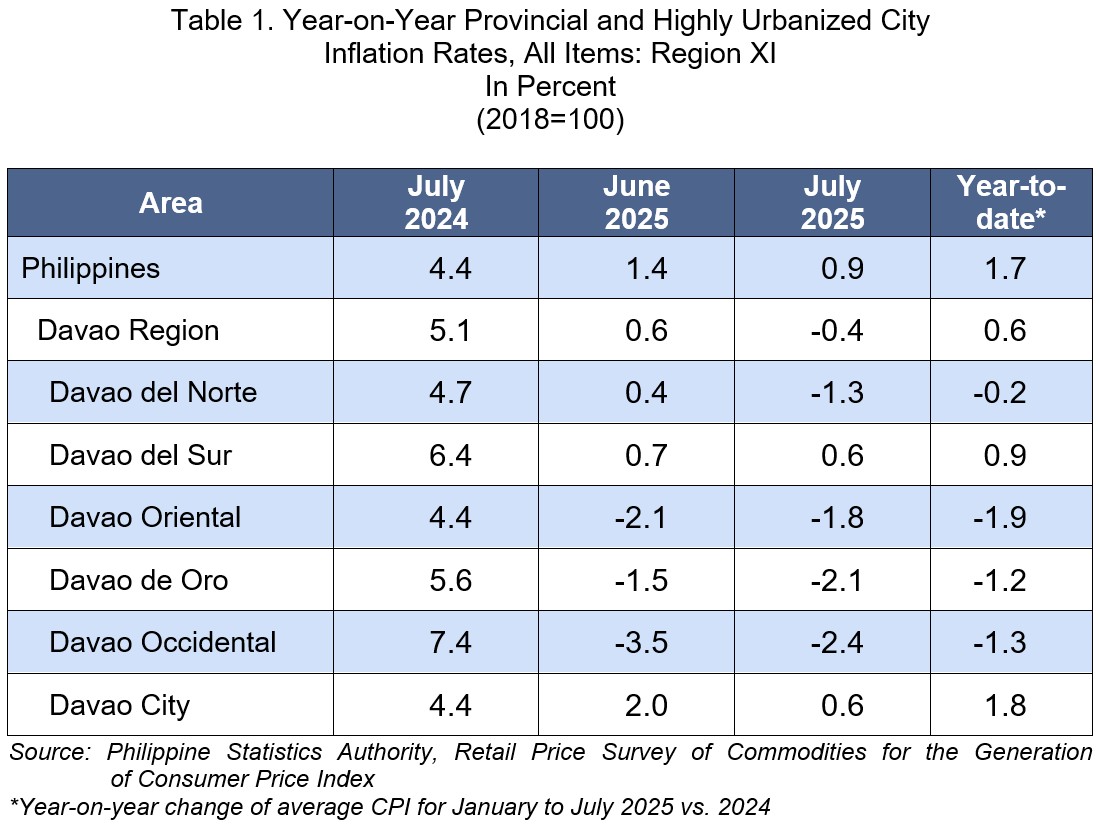
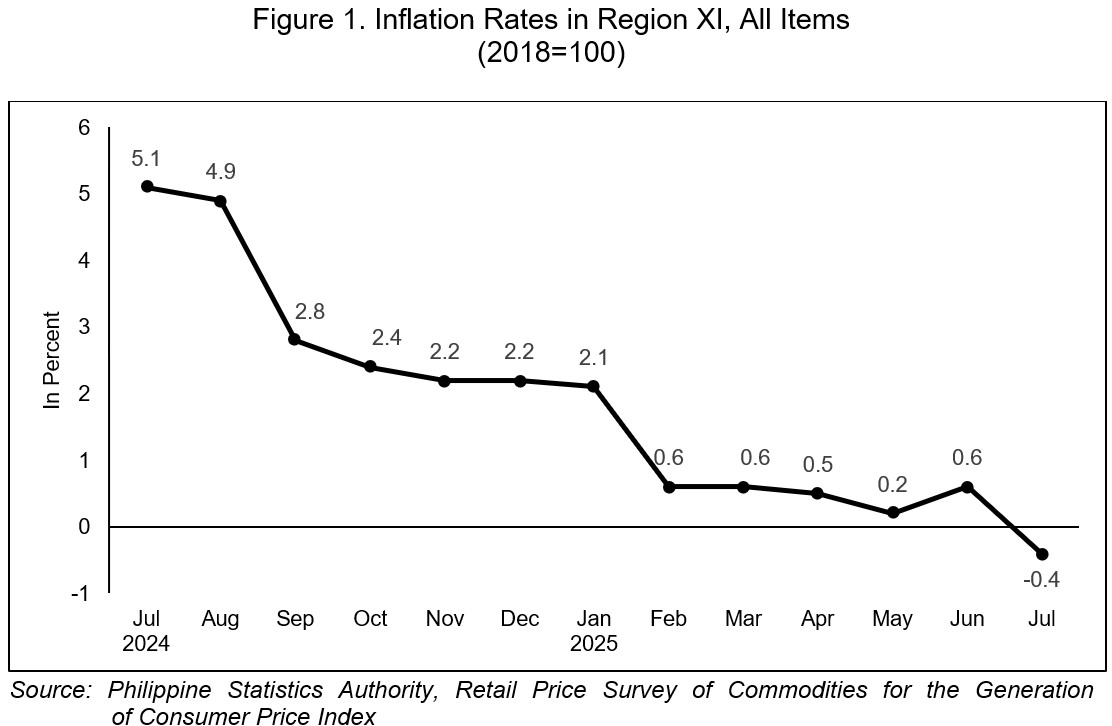
1. Regional Headline Inflation
The year-on-year headline inflation of Davao Region declined at -0.4 percent in July 2025 from 0.6 percent in June 2025. In July 2024, the region’s inflation was higher at 5.1 percent. (Table 1 and Figure 1).
The downtrend in the region’s overall inflation in July 2025 was primarily brought about by the slower annual increment in the index of Housing, Water, Electricity, Gas and Other Fuels at -1.0 percent from 1.8 percent and a faster price decline in the commodity group of Food and Non-Alcoholic Beverages at -2.4 percent from -1.4 percent.
Additionally, slower annual increments were noted in the indices of the following commodity groups during the month:
a. Alcoholic Beverages and Tobacco, at 4.2 percent from 4.5 percent;
b. Clothing and Footwear, at 2.4 percent from 2.7 percent;
c. Transport, at -2.0 percent from -1.7 percent;
d. Recreation, Sport, and Culture at 4.9 percent from 5.4 percent;
e. Education Services, at 10.4 percent from 11.7 percent; and
f. Restaurants and Accommodation Services, at 3.5 percent from 3.6 percent.
On the other hand, faster annual increments were noted in the indices Health, at 3.3 percent from 3.2 percent, Information and Communication, at 1.1 percent from 0.9 percent, and Personal Care, and Miscellaneous Goods and Services at 3.9 percent from 3.7 percent.
Meanwhile, Furnishings, Household Equipment, and Routine Household Maintenance at 3.2 percent, and Financial Services, at 0.0 percent, retained its previous month’s inflation rate.
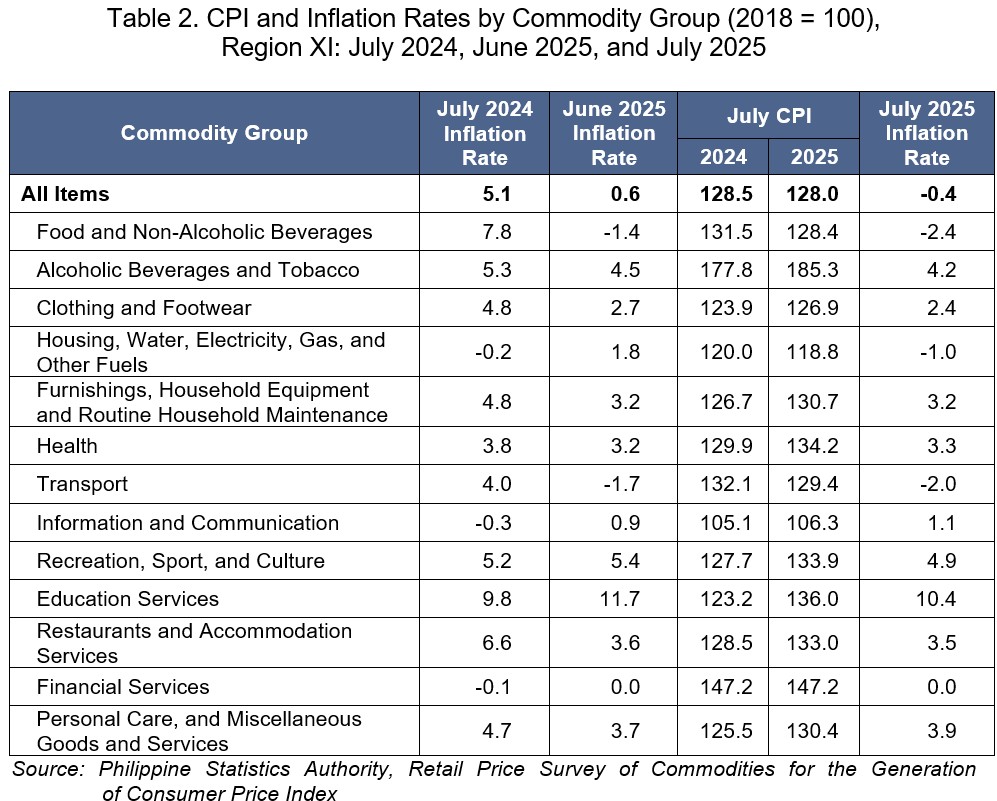
2. Davao Region Food Inflation
The region’s food inflation recorded a faster price decline at -2.8 percent in July 2025 from -1.9 percent in the previous month. In July 2024, the Food inflation was higher at 8.1 percent. (Table 3)
The main contributors to the downtrend in the region’s food inflation were the commodity group of Fish and Other Seafood, at 3.5 percent from 5.3 percent, followed by Cereals and Cereal Products, at -13.1 percent from -12.3 percent, and Vegetables, Tubers, Plantains, Cooking Bananas, and Pulses, at -5.8 percent from -2.5 percent.
Moreover, the following commodity groups also recorded slower inflation in July 2025 than in June 2025, namely:
a. Meat and Other Parts of Slaughtered Land Animals, at 4.6 percent from 5.2 percent;
b. Fruits and Nuts at 0.9 percent from 2.3 percent; and
c. Ready-made Food and Other Food Products n.e.c. at 2.2 percent from 3.1 percent.
On the other hand, the indices of the following food commodity groups recorded faster annual growth rates during the month, namely:
a. Milk, Other Dairy Products, and Eggs, at 6.5 percent from 5.9 percent;
b. Oils and Fats, at 17.4 percent from 16.3 percent; and
c. Sugar, Confectionery, and Desserts, at 0.1 percent from -1.5 percent.
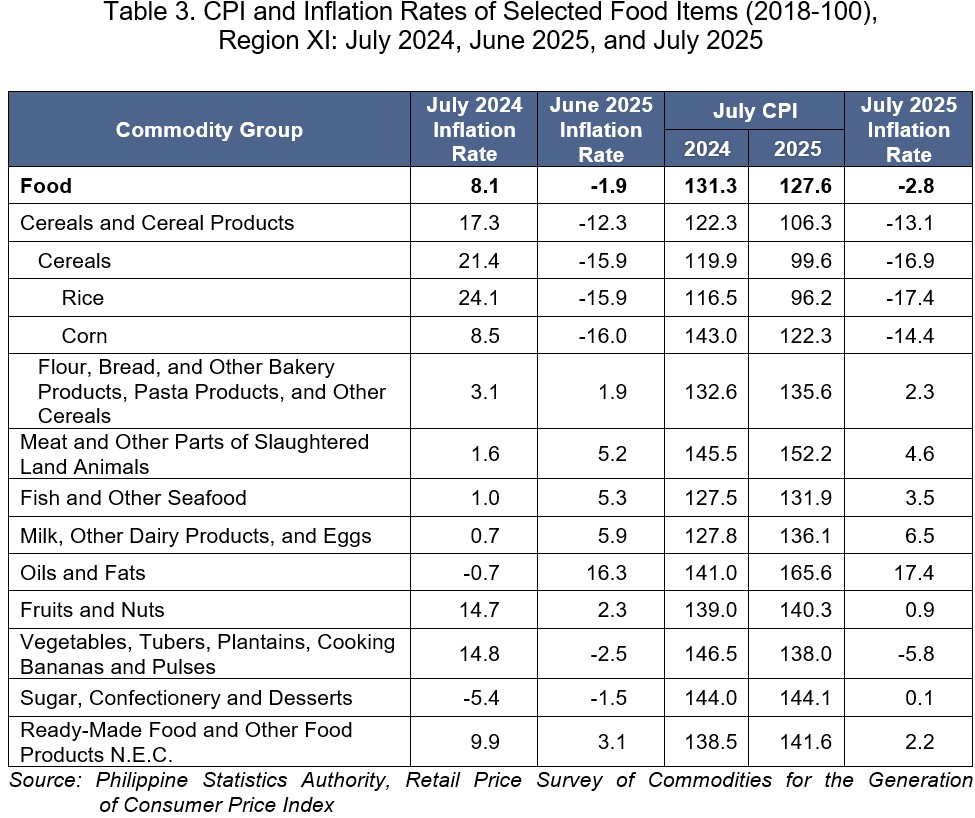
3. Regional Inflation Rates
At the national level, the country's headline inflation increased to 0.9 percent from its previous month’s inflation at 1.4 percent. (Table 4 and Figure 2)
Among the 18 administrative regions, the Region I (Ilocos Region) had the highest inflation rate at 1.9 percent, followed by Region IVA (CALABARZON) at 1.8 percent, and National Capital Region (NCR) and Region V (Bicol Region) both at 1.7 percent.
On the other hand, BARMM recorded the lowest inflation rate at -1.7 percent.
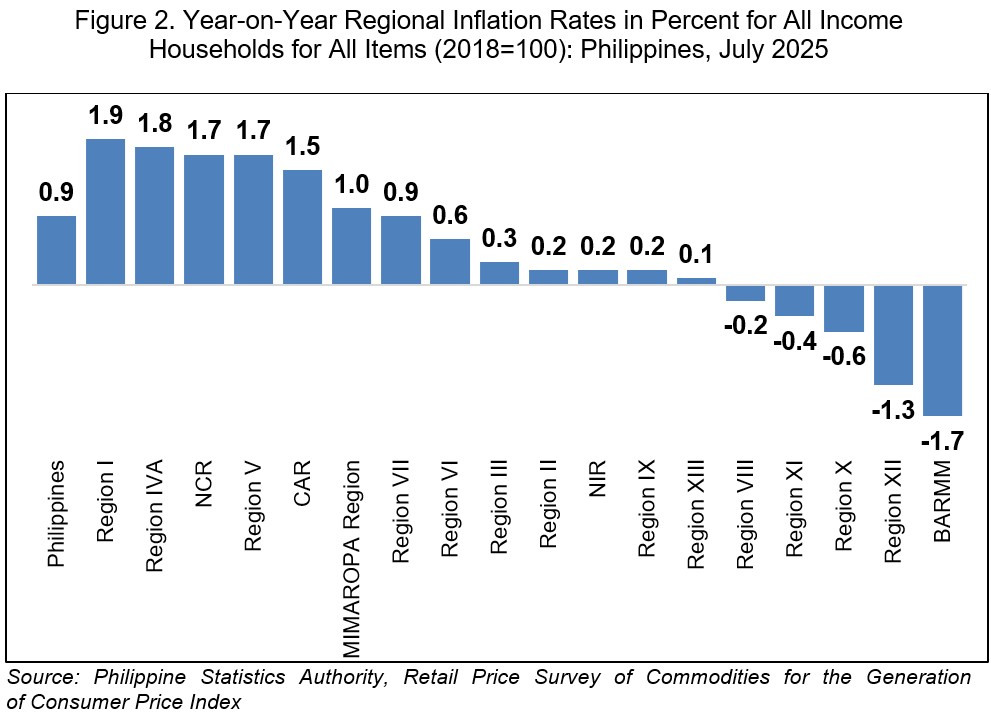
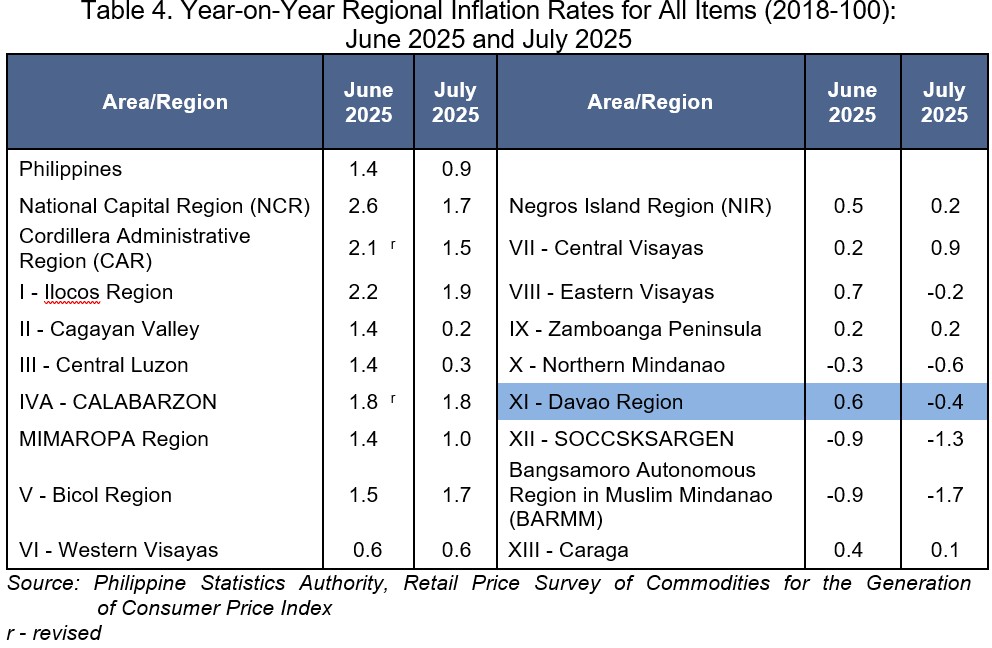
________________________________________________________________________________________________________
Note: CPIs and inflation rates by province and selected cities are posted on the PSA website (https://openstat.psa.gov.ph/).
APPROVED FOR RELEASE:
BABY JEAN P. ALID
(Chief Administrative Officer)
Officer-In-Charge
Regional Statistical Services Office XI
